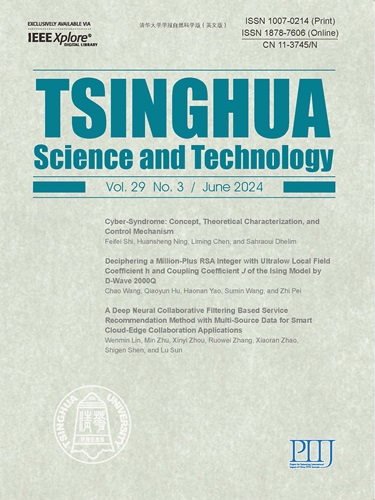CRESP:以成本为导向的边缘服务提供
IF 3.5
1区 计算机科学
Q1 Multidisciplinary
引用次数: 0
摘要
在5G环境中,边缘计算范式使服务提供商能够将其服务实例部署在分布式边缘服务器上,以极低的延迟为附近的最终用户提供服务。这推动了AR/VR、在线游戏和自动驾驶汽车等现代应用的出现。现有方法在假设所有用户需求都已知的情况下寻找服务提供策略。然而,这一假设在实践中可能并不正确,因此现有办法的有效性可能受到损害。受推荐系统在各个领域取得巨大成功的启发,我们可以根据用户在当前服务使用方面的相似性来挖掘用户对新服务的兴趣。然后,可以相应地提供新的服务实例,以更好地满足用户的需求。我们将本文研究的问题描述为一个成本意识的推荐导向边缘服务提供(CRESP)问题。然后,我们将CRESP问题正式建模为约束优化问题(COP)。接下来,我们提出了CRESP- o来寻找小规模CRESP问题的最优解。此外,为了有效地解决大规模的CRESP问题,我们提出了一种具有理论性能保证的近似方法——CRESP- a。最后,我们在公共测试平台上对几种最先进的方法对CRESP-O和CRESP-A的性能进行了实验评估。本文章由计算机程序翻译,如有差异,请以英文原文为准。
CRESP: Cost-Aware Recommendation-Oriented Edge Service Provision
In the 5G environment, the edge computing paradigm enables service providers to deploy their service instances on distributed edge servers to serve nearby end users with extremely low latency. This boosts the emergence of modern applications, like AR/VR, online gaming, and autonomous vehicles. Existing approaches find service provision strategies under the assumption that all the user requirements are known. However, this assumption may not be true in practice and thus the effectiveness of existing approaches could be undermined. Inspired by the great success of recommender systems in various fields, we can mine users' interests in new services based on their similarities in terms of current service usage. Then, new service instances can be provisioned accordingly to better fulfil users' requirements. We formulate the problem studied in this paper as a Cost-aware Recommendation-oriented Edge Service Provision (CRESP) problem. Then, we formally model the CRESP problem as a Constrained Optimization Problem (COP). Next, we propose CRESP-O to find optimal solutions to small-scale CRESP problems. Besides, to solve large-scale CRESP problems efficiently, we propose an approximation approach named CRESP-A, which has a theoretical performance guarantee. Finally, we experimentally evaluate the performance of both CRESP-O and CRESP-A against several state-of-the-art approaches on a public testbed.
求助全文
通过发布文献求助,成功后即可免费获取论文全文。
去求助
来源期刊

Tsinghua Science and Technology
COMPUTER SCIENCE, INFORMATION SYSTEMSCOMPU-COMPUTER SCIENCE, SOFTWARE ENGINEERING
CiteScore
10.20
自引率
10.60%
发文量
2340
期刊介绍:
Tsinghua Science and Technology (Tsinghua Sci Technol) started publication in 1996. It is an international academic journal sponsored by Tsinghua University and is published bimonthly. This journal aims at presenting the up-to-date scientific achievements in computer science, electronic engineering, and other IT fields. Contributions all over the world are welcome.
 求助内容:
求助内容: 应助结果提醒方式:
应助结果提醒方式:


